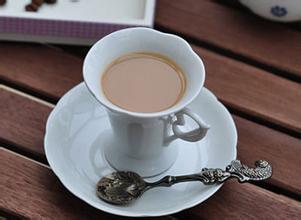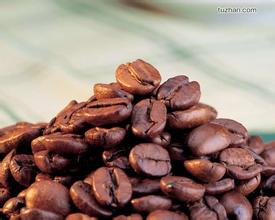Civet Coffee Kopi Luwak Fine Coffee beans introduction to the latest Coffee knowledge
Cat poop coffee, Indonesia. In the early 18th century, the Dutch established coffee plantations in the Indonesian colonies of Sumatra and Java, and prohibited the locals from picking and eating their own coffee fruits. Indonesian locals accidentally discovered that civet cats love to eat these coffee fruits and will expel the beans intact when defecating.
Civets eat only the sweetest beans, which is a natural selection in itself, and second, locals have found that the beans ferment in the cat's stomach and produce coffee that tastes better than regular coffee. The delicious cat feces coffee gradually became famous and became a hot commodity in the international market.
Cat poop coffee is produced from the feces of Indonesian coconut cats (a kind of civet cat), so it is called "cat poop coffee". This kind of animal mainly feeds on coffee beans. After fermentation in coconut cat stomach, protein is destroyed, short peptides and more free amino acids are produced, the bitter taste of coffee will be reduced, and the feces discharged will be the main raw material. Since coffee beans cannot be digested, they will be excreted. After washing and baking, they become cat feces coffee. Coffee critic Chris Rubin said,"The bouquet is so rich and intense, and the coffee is incredibly rich, almost syrupy. The thickness and chocolaty texture of it, and lingering on the tongue for a long time, pure aftertaste."
Coconut cats are omnivorous animals. In addition to eating seeds for a living, they also eat insects, snakes, birds, amphibians and reptiles. Therefore, the feces discharged by real wild coconut cats will be mixed with various substances. Indonesian local farmers catch coconut cats to raise and feed coffee beans to make them. However, there was still a certain difference between artificial cultivation and natural cultivation.
"Cat poop coffee" is the world's least produced coffee, a bag of 50 grams of coffee beans worth more than 800 yuan, only 4- 5 cups of coffee. In terms of conversion, a cup sells for about 200 yuan. Indonesia's largest coffee supplier, Fireboat Group, produces a small gift box of civet coffee for 600 yuan and 50 grams. The packaging is extremely luxurious, while the asking price of 100 grams is more than 2000 yuan. The annual output of wild coffee in the world does not exceed 400 kilograms. Villagers in these areas now collect not only wild ruaka waste but also caged ruaka. Large pots of picked coffee cherries were placed in front of Ruwaka, who was hungry and had no choice but to eat all the coffee cherries. The taste of the coffee produced in this way is naturally greatly discounted. "Rare is expensive", which has led to the high price of Kopi Luwak, a rare treasure. I'm afraid you can prepare 50 pounds for a cup of coffee, and you may not find it anywhere.

Important Notice :
前街咖啡 FrontStreet Coffee has moved to new addredd:
FrontStreet Coffee Address: 315,Donghua East Road,GuangZhou
Tel:020 38364473
- Prev

Fine coffee beans Blue Mountain coffee latest coffee introduction Unique flavor full taste
Blue Mountain coffee is coffee brewed from coffee beans from the Blue Mountains of Jamaica. Among them, according to grades, it is divided into Jamaica Blue Mountain Coffee and Jamaica Alpine Coffee. The Blue Mountains are located in the eastern part of Jamaica. Because the mountains are surrounded by the Caribbean Sea, on a clear day, the sun shines directly on the blue sea, and the peaks reflect the brilliant blue light of the sea.
- Next

Cuban Crystal Mountain Coffee the latest coffee introduces unique flavor and full taste.
Crystal Mountain Coffee comes from the Crystal Mountain of Cuba, so it is called Cuban Crystal Mountain Coffee. Crystal Mountain Coffee is synonymous with top Cuban coffee, because this area not only grows coffee, but also produces quartz, crystal and other precious minerals. A prominent feature of Crystal Mountain Coffee is its large granule and bright green color of coffee beans. Its flavor and taste characteristics: full granules, uniform taste
Related
- Detailed explanation of Jadeite planting Land in Panamanian Jadeite Manor introduction to the grading system of Jadeite competitive bidding, Red bid, Green bid and Rose Summer
- Story of Coffee planting in Brenka region of Costa Rica Stonehenge Manor anaerobic heavy honey treatment of flavor mouth
- What's on the barrel of Blue Mountain Coffee beans?
- Can American coffee also pull flowers? How to use hot American style to pull out a good-looking pattern?
- Can you make a cold extract with coffee beans? What is the right proportion for cold-extracted coffee formula?
- Indonesian PWN Gold Mandrine Coffee Origin Features Flavor How to Chong? Mandolin coffee is American.
- A brief introduction to the flavor characteristics of Brazilian yellow bourbon coffee beans
- What is the effect of different water quality on the flavor of cold-extracted coffee? What kind of water is best for brewing coffee?
- Why do you think of Rose Summer whenever you mention Panamanian coffee?
- Introduction to the characteristics of authentic blue mountain coffee bean producing areas? What is the CIB Coffee Authority in Jamaica?

